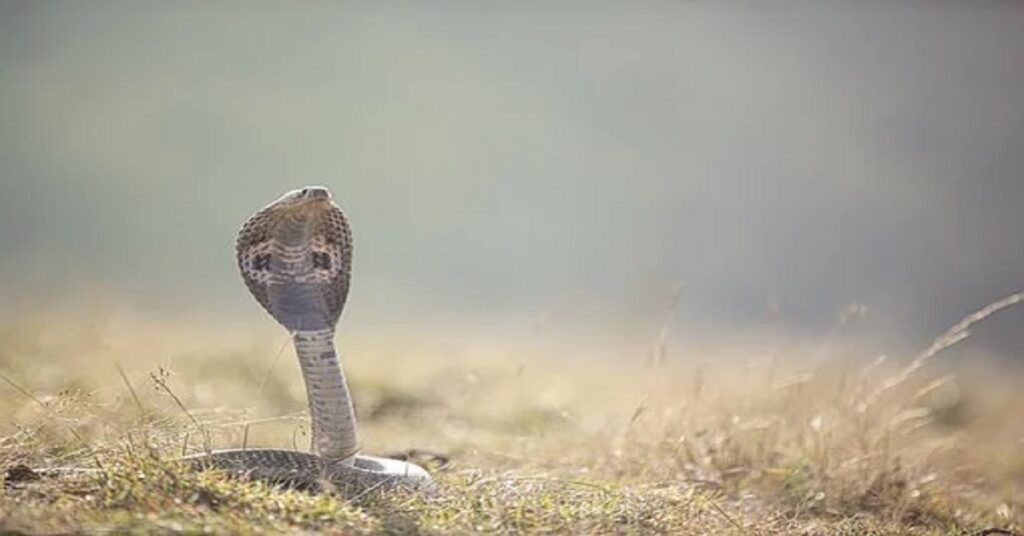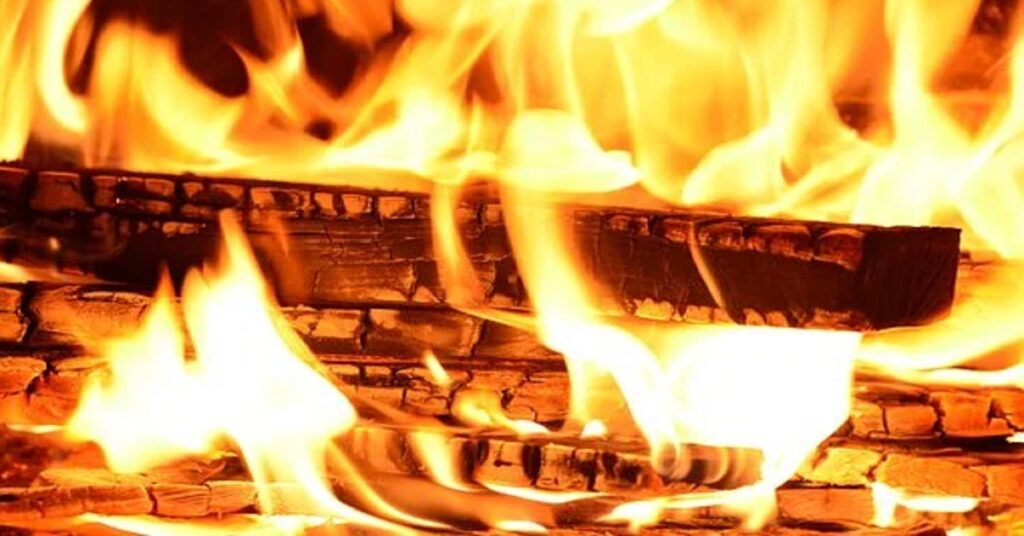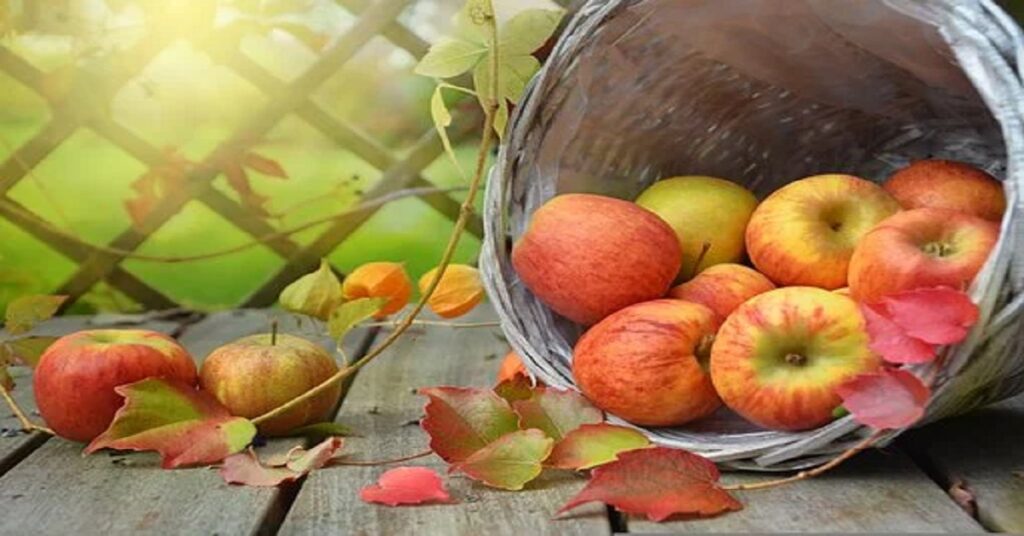In this article, I shall read Bihar Board Class 12th English Poetry Chapter 9 Snake Summary Explanation in Hindi and English with Objective Questions.

9. Snake
The poem ‘Snake’ has been composed by D.H. Lawrence. This poem is about a thirsty snake.
‘साँप’ कविता को डी.एच. लौरेंस के द्वारा संकलित किया गया है। यह पाठ एक प्यासा साँप से संबंधित है।
It was very hot time. The poet feels very thirsty, he goes to his tub to drink water. A snake came near that tub, which was thirsty. The snake went into the tub and drank the water and started going back towards its cave.
बहुत गर्मी का समय था। कवि को बहुत प्यास लगती है, वह अपने टब के पास पानी पीने के लिए जाते हैं। उस टब के पास एक साँप आया, जो प्यासा था। साँप ने टब में जाकर पानी पीया और वापस अपने गुफा की तरफ जाने लगा।
The poet thought that this snake should be killed. Because he knew that golden colored snake is poisonous.
कवि ने सोचा कि इस साँप को मार देना चाहिए। क्योंकि वह जानते थे कि सुनहरे रंग का साँप जहरीला होता है।
When the snake was going to the cave of the wall after drinking water. The poet picked up a piece of wood and hit it on the snake’s tail. The snake soon drove itself into the torn hole in the wall.
साँप पानी पीकर जब दीवार के गुफा में जा रहा था। कवि ने एक लकड़ी का टुकड़ा उठाया और उस साँप के पूँछ पर मार दिया। साँप जल्द ही अपने आप को दीवार के फटी छेद में चला गया।
When the poet killed the snake, he felt remorse. He seemed to be the king of the uncrowned. The poet began to atone for his work.
कवि ने जब साँप को मार दिया, तो उन्हें पछतावा होने लगा। वह बेताज का बादशाह प्रतीत होने लगा। कवि अपने काम पर प्रायश्चित करने लगे।
In this way, the poet gives the message of protecting small creatures through this poem.
इस प्रकार, कवि ने इस पाठ के माध्यम से छोटे-छोटे जीवों की रक्षा करने का संदेश देते हैं।
Snake objective
Q 1. ‘He lifted his head from his drinking’ is from
(A) Snake
(B) Song of Myself
(C) Ode to Autumn
(D) An Epitaph
Ans- (A) Snake
Q 2. D.H Lawrence exarts the values of primitive life in
(A) Snake
(B) Fure-Hymn
(C) Song of Myself
(D) My Grendmother’s House
Ans- (A) Snake
Q 3. When the poet saw the snake, it was a very ….. day.
(A) cool
(B) warm
(C) cold
(D) hot
Ans- (D) hot
Q 4. Snske is written by ……
(A) John Donne
(B) Kamala Das
(C) D H Lawrence
(D) Walt Whitman
Ans- (C) D H Lawrence
Q 5. The poet had gone to the water trough to drink ……
(A) water
(B) tea
(C) coffee
(D) cigarette
Ans- (A) water
Q 6. Etana is in …..
(A) Sicily
(B) Rome
(C) Athens
(D) Paris
Ans- (A) Sicily
Q 7. A Snake appears on a trough of the …… to sop water.
(A) teacher
(B) doctor
(C) lawyer
(D) poet
Ans- (D) poet
Q 8. The speaker (poet) considered himself a ……. come.
(A) second
(B) third
(C) first
(D) None of these
Ans- (A) second
Q 9. The snake looked at the poet ……
(A) happily
(B) considerngly
(C) sadly
(D) vaguely
Ans- (B) considerngly
Q 10. A …… is mentioned in the poem Snake.
(A) Peepal tree
(B) Carbotree
(C) Banyan
(D) Mango
Ans- (B) Carbotree
Q 11. Who decided to hit the snake?
(A) D H Lawrence
(B) TS Eliot
(C) Keki N Daruwala
(D) None of these
Ans- (A) D H Lawrence
Q 12. It was a …… day when the poet saw snake.
(A) cold
(B) hot
(C) humid
(D) None of these
Ans- (B) hot
Q 13. D H Lawrence bilonged to …..
(A) Britain
(B) France
(C) America
(D) None of these
Ans- (A) Britain
Q 14. ”And stooped and drank a little more” is from
(A) Fier-Hymn
(B) Song of Myself
(C) Snake
(D) Ode to Autumn
Ans- (C) Snake
Q 15. The poet waited for the snake because …….
(A) he was afraid
(B) he had come after the snake
(C) he wanted to kill it
(D) he wanted to see its hole
Ans- (B) he had come after the snake
Q 16. ‘He lifted his head from his drinking, as cattle do’ …….. is from.
(A) Fire-Hymn
(B) To Autumn
(C) Snake
(D) Song of Myself
Ans- (C) Snake
Q 17. The poet had a ……. to fill with.
(A) pitcher
(B) bucket
(C) muy
(D) None of these
Ans- (A) pitcher
Q 18. The poet was at the water trough to:
(A) stroll around
(B) sit under the tree
(C) see the snake
(D) quench his thirst
Ans- (D) quench his thirst
Q 19. The poet decides to wait for the snake because ……..
(A) he was afraid of it
(B) he had come after the snake
(C) he wanted to kill it
(D) he wanted to see its hole
Ans- (B) he had come after the snake
Q 20. ‘And stooped and drank a little more’-the poet is referring to………
(A) himself
(B) cattle
(C) birds
(D) snake
Ans- (D) snake
Q 21. ‘In the deep, strange-scented shade of the great dark carob tree’ – is from:
(A) Snake
(B) Song of Myself
(C) The Soldier
(D) My Grandmother’s House
Ans- (A) Snake
BSEB Class 12th English Summary with Objective- Click here
Class 12th Hindi- Click here
Download BSEB Books– Click here
Snake Summary Explanation in Hindi, Bihar Board Class 12th English Poetry Chapter 9 Snake, Rainbow Part 2 English Snake by D. H. Lawrence, Class 12th English Snake Objective Questions.








